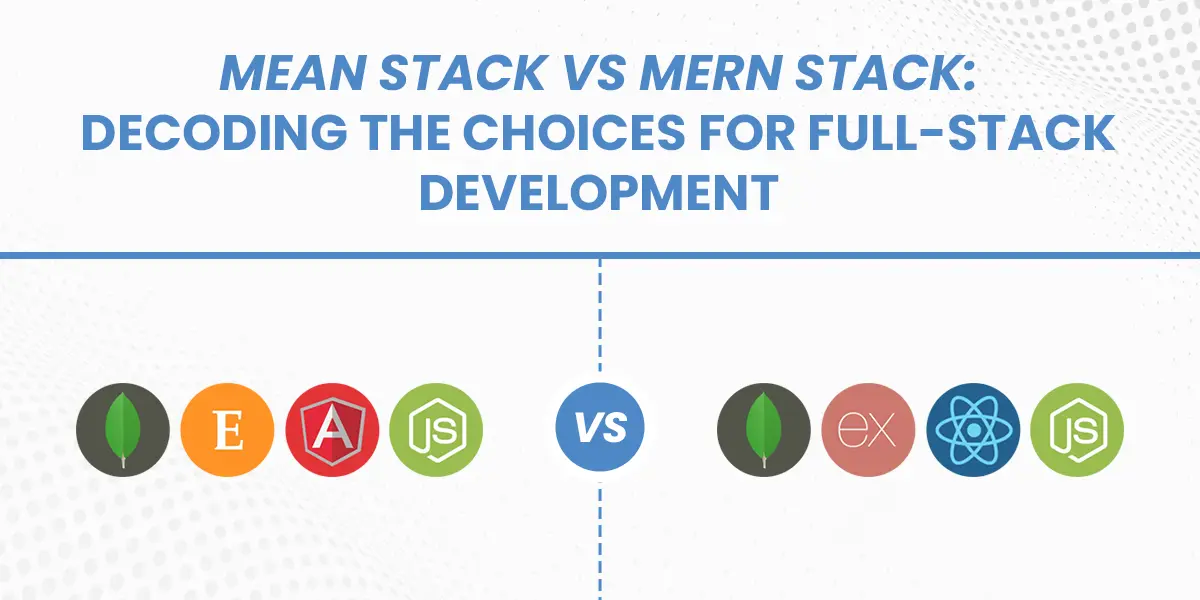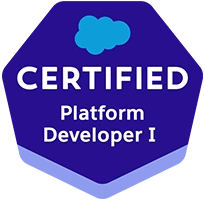Mean Stack vs MERN Stack: Decoding the Choices for Full-Stack Development
In the ever-evolving landscape of web development, choosing the right technology stack is a critical decision for developers and businesses alike. Two popular contenders in the realm of full-stack development are the MEAN stack vs MERN stack. In this exploration of Mean Stack vs Mern Stack we’ll delve into the key features of each stack to help you make an informed decision based on your project requirements and preferences.

MEAN STACK– MEAN Stack vs MERN Stack
MEAN Stack: Crafting Dynamic Web Applications with
Let’s kick off our discussion with the MEAN stack, a collection of technologies that share a common language—JavaScript. MEAN stands for MongoDB, Express.js, Angular, and Node.js. Here’s a breakdown of each component:
MongoDB
MEAN’s database component is MongoDB, a NoSQL database that stores data in flexible, JSON-like documents. Its scalability and schema-less nature make it suitable for handling large amounts of unstructured data.
Express.js
Express.js is a minimalist web application framework for Node.js, providing a robust set of features to build web and mobile applications. It simplifies the development process, enabling developers to create RESTful APIs seamlessly.
Angular
Angular, developed and maintained by Google, is a front-end framework that facilitates the creation of dynamic, single-page web applications. Its two-way data binding and modular architecture enhance the overall development experience.
Node.js
Node.js, the last piece of the Mean puzzle, is a server-side JavaScript runtime that enables the execution of JavaScript code outside a web browser. Its event-driven, non-blocking I/O model ensures high scalability and performance.
| Aspect | Mean Stack | MERN Stack |
|---|---|---|
| MongoDB: | Mean’s database component is MongoDB, a NoSQL database that stores data in flexible, JSON-like documents. Its scalability and schema-less nature make it suitable for handling large amounts of unstructured data. | Similar to the Mean Stack, MERN uses MongoDB for data storage and Express.js for building RESTful APIs. This combination provides a reliable foundation for server-side operations. |
| Express.js: | Express.js is a minimalist web application framework for Node.js, providing a robust set of features to build web and mobile applications. It simplifies the development process, enabling developers to create RESTful APIs seamlessly. | Express.js is part of both stacks, playing a crucial role in handling server-side operations and facilitating the creation of RESTful APIs. |
| Angular: | Angular, developed and maintained by Google, is a front-end framework that facilitates the creation of dynamic, single-page web applications. Its two-way data binding and modular architecture enhance the overall development experience. | MERN swaps Angular for React in the front-end development, providing developers with an alternative framework for building dynamic user interfaces. |
| Node.js: | Node.js, the last piece of the Mean puzzle, is a server-side JavaScript runtime that enables the execution of JavaScript code outside a web browser. Its event-driven, non-blocking I/O model ensures high scalability and performance. | Node.js serves as the server-side runtime environment for both Mean and MERN, ensuring a consistent JavaScript experience throughout the development process. |
Key Highlights of MEAN Stack:
- Full JavaScript Stack: A unified JavaScript language throughout the stack streamlines development.
- Scalability: Node.js and MongoDB contribute to the scalability of MEAN applications.
- Real-time Applications: Node.js enables the development of real-time applications with its event-driven architecture.
MERN Stack
MERN Stack: Reacting to Dynamic Web Development
On the other side of the spectrum is the MERN stack, which swaps Angular for React in the front-end development. MERN stands for MongoDB, Express.js, React, and Node.js. Let’s explore each component:
MongoDB & Express.js
Similar to the MEAN stack, MERN uses MongoDB for data storage and Express.js for building RESTful APIs. This combination provides a reliable foundation for server-side operations.
React
React, developed by Facebook, is a declarative and efficient JavaScript library for building user interfaces. Its component-based structure allows developers to create reusable UI elements, fostering a modular approach to front-end development.
Node.js
As in the Mean Stack, Node.js serves as the server-side runtime environment for MERN, ensuring a consistent JavaScript experience throughout the development process.
| Aspect | Mean Stack | MERN Stack |
|---|---|---|
| React: | – | React, developed by Facebook, is a declarative and efficient JavaScript library for building user interfaces. Its component-based structure allows developers to create reusable UI elements, fostering a modular approach to front-end development. |
| Node.js: | As in the Mean Stack, Node.js serves as the server-side runtime environment for MERN, ensuring a consistent JavaScript experience throughout the development process. | – |
Key Highlights of MEAN Stack:
- React for Dynamic UI: React’s component-based structure enables the creation of dynamic and interactive user interfaces.
- Virtual DOM: React’s virtual DOM enhances performance by minimizing direct manipulation of the actual DOM.
- Rich Ecosystem: React boasts a rich ecosystem of libraries and tools, enhancing the development process.
Mean stack vs Mern stack
Mean stack vs Mern stack
Now that we’ve dissected both stacks mean vs mern stack , let’s consider factors that can influence your decision:
| Aspect | MEAN Stack | MERN Stack |
|---|---|---|
| Database | MongoDB (NoSQL) | MongoDB (NoSQL) |
| Server-Side Framework | Express.js | Express.js |
| Front-End Framework | Angular | React |
| Front-End Library | – | React |
| Back-End Runtime | Node.js | Node.js |
| Language | JavaScript throughout | JavaScript throughout |
| Data Handling | JSON-like documents, NoSQL | JSON-like documents, NoSQL |
| Scalability | Achieved through Node.js | Achieved through Node.js |
| Real-Time Applications | Enabled through Node.js | Virtual DOM for efficient updates in real-time |
| Community Support | Active community with a mature ecosystem | Active community with an extensive React ecosystem |
| Learning Curve | Potentially steeper due to the full-fledged Angular | Relatively smoother, especially if familiar with React |
| Flexibility | Opinions and structure provided by Angular | More flexibility with React’s component-based approach |
| Ecosystem | Comprehensive, may include a broader range of tools | Rich ecosystem with a variety of React-specific libraries |
| UI Building Approach | Two-way data binding in Angular | Component-based structure in React |
| Project Suitability | Real-time applications, complex structures | Interactive user interfaces, dynamic UIs |
Component Library Preference: If you have a preference for Angular’s two-way data binding and a more opinionated structure, MEAN might be your choice. If you lean towards a component-based, flexible approach, MERN with React is worth exploring.
- Community and Ecosystem: Both stacks have vibrant communities, but React’s extensive ecosystem and third-party libraries might be advantageous for projects requiring a broad range of tools.
- Learning Curve: Angular, with its full-fledged framework, might have a steeper learning curve compared to React’s more straightforward library. Consider your team’s familiarity and expertise with these technologies.
- Project Requirements: Assess your project requirements carefully. MEAN might be preferable for applications that require real-time features, while MERN could be a better fit for projects demanding a highly interactive user interface.
The choice between MEAN stack vs. MERN stack depends on your specific needs, team expertise, and project goals. Whether you opt for MEAN’s comprehensive structure or MERN’s flexible and modular approach, both stacks offer powerful tools for building dynamic and scalable web applications.
If you are seeking expert guidance and implementation, consider engaging with a technology partner like Deligence Technologies, known for their proficiency in full-stack development and their commitment to delivering innovative and tailored solutions for a diverse range of projects.













